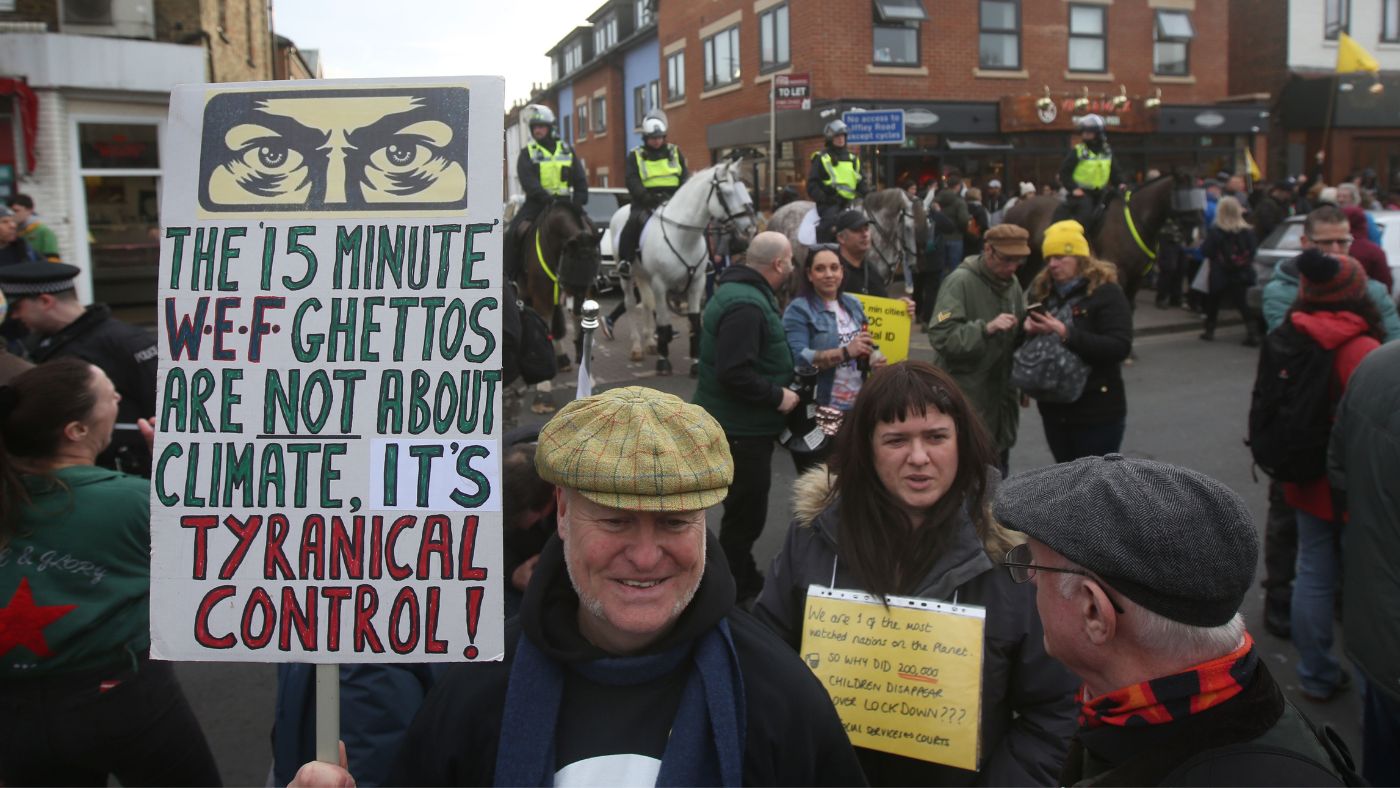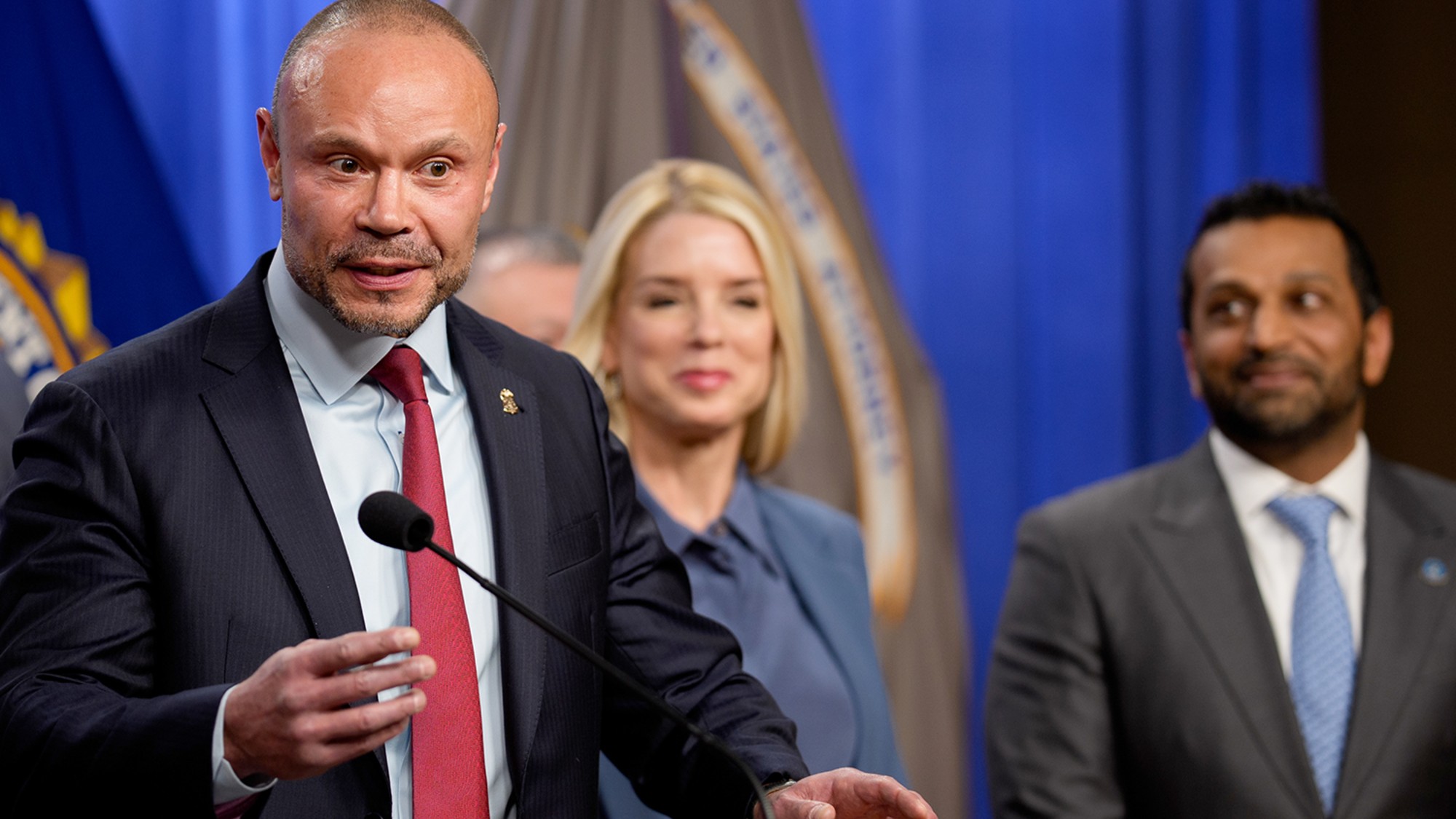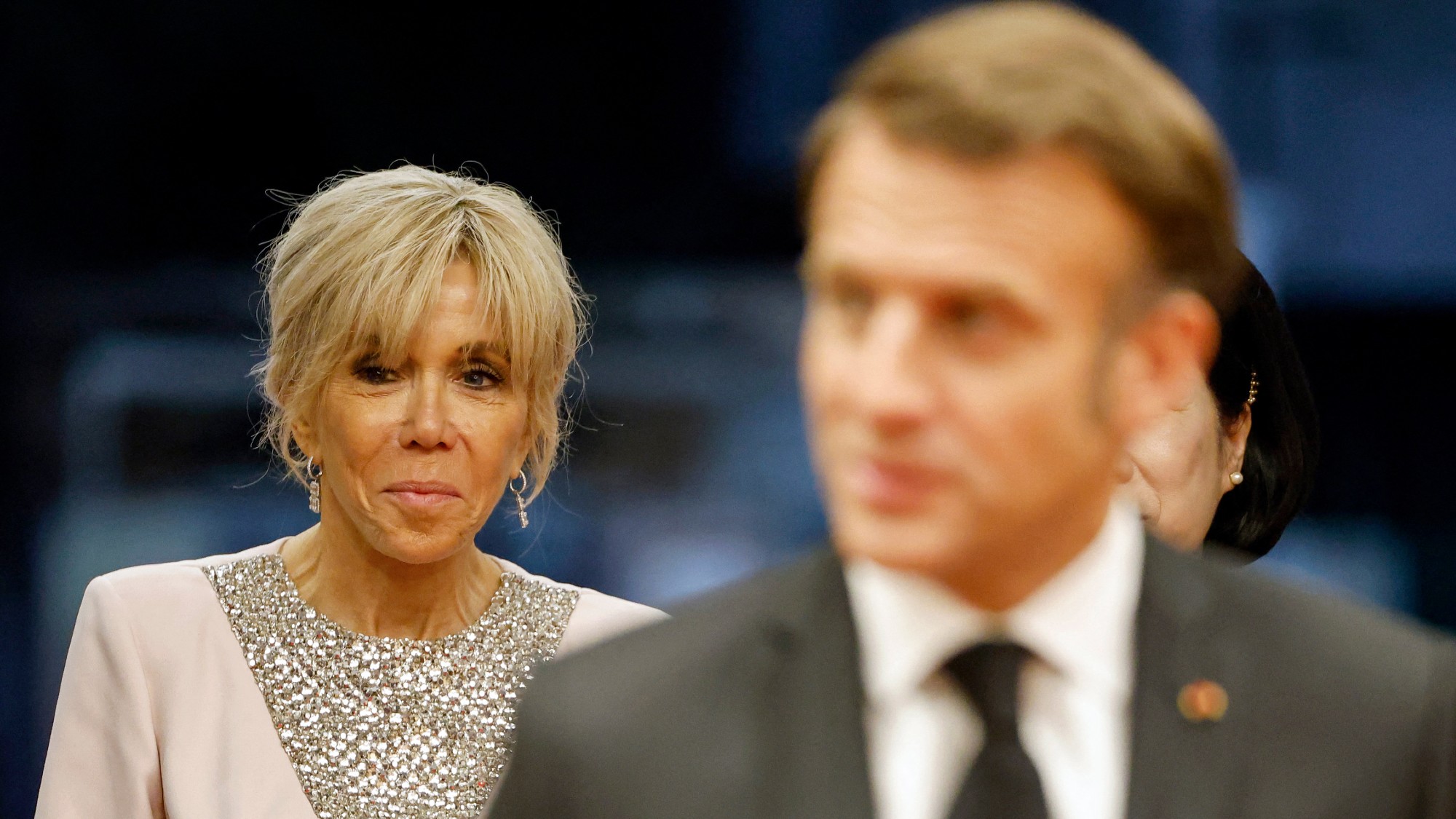15-minute cities and conspiracy theorists
An urban planning idea has become the focus of protests against ‘socialist’ attempt to control population

A free daily email with the biggest news stories of the day – and the best features from TheWeek.com
You are now subscribed
Your newsletter sign-up was successful
A simple town planning concept that is gaining support around the world has become the subject of spiralling conspiracy theories and vehement protests.
The idea – known as the 15-minute city – is “the current zeitgeist in planning, and calls for city design that is centred on people and their needs rather than being designed for cars”, said The Conversation.
The heart of the concept is that everyday services such as grocery shops, doctors and parks should all be accessible within a 15-minute walk of where people live.
The Week
Escape your echo chamber. Get the facts behind the news, plus analysis from multiple perspectives.

Sign up for The Week's Free Newsletters
From our morning news briefing to a weekly Good News Newsletter, get the best of The Week delivered directly to your inbox.
From our morning news briefing to a weekly Good News Newsletter, get the best of The Week delivered directly to your inbox.
However, misconceptions and criticism of the idea have gone so far that it was mentioned in parliament by a Tory MP, Nick Fletcher, who claimed the “international socialist concept” will “cost us our personal freedom”, said Rowan Moore in The Observer.
Protests took place in Oxford over the weekend, where local councillors have been inundated with confused calls and emails about their plans for a 15-minute city and for low-traffic neighbourhoods (LTNs).
Where did the 15-minute city come from?
The concept was thought up by the French-Colombian urbanist Carlos Moreno, a professor at Paris’s Sorbonne University.
It took off after the pandemic, when having a well-served local neighbourhood took on a new significance as many people were travelling less and working from home.
A free daily email with the biggest news stories of the day – and the best features from TheWeek.com
The mayor of Paris, Anne Hidalgo, enthusiastically embraced the concept – placing it at the heart of her 2020 re-election campaign – which brought it into “the mainstream”, said The New European.
In July 2020, the C40 cities network – a group of nearly 100 city mayors taking action against the climate crisis – published a framework for cities to “build back better” after the pandemic, “and the 15-minute city was at the heart of it”.
What do the theories claim?
“How this extremely benign, rather geeky urban planning objective has become the subject of international conspiracy theories… is both fascinating and worrying,” said Jack Brown in On London.
“Listen to softly-spoken Moreno describe his idea. It seeks to provide human scale and community within the growing cities of today.”
And yet somehow it has become the emblem of government control.
“Among other things, the charge sheet against 15-minute cities is that they are a ‘socialist’, or even ‘Stalinist’, attempt to control the population by actively preventing citizens from straying more than 15 minutes from their homes,” said several urban planning academics on The Conversation.
The conspiracies have dismayed politicians and academics alike, who are baffled by the misinterpretation of the idea. “Never have there been proposals for restrictions – on the contrary, this is a new opportunity: more choice, more services, more desire to thrive in one’s neighbourhood,” Moreno told AFP.
In a video viewed more than 59,000 times on Facebook, one man commenting on the plan for changes in Edmonton, Canada, claimed: “You can’t leave a 15-minute city whenever you please… The city walls or restrictions or zones or whatever you want to call them won’t be used to keep others out, they’ll be used to lock everyone in.”
Right-wing pundits, Slate reports, “have railed against these ‘tyrannical bureaucrats,’ (Jordan Peterson) with their ‘insidious’ and ‘evil’ (Andrew Vobes) ‘climate change lockdowns,’ (Nigel Farage) and ‘surveillance culture to make Pyongyang envious’ (right-leaning news channel GBTV)”.
What is happening in Oxford?
In the UK, Oxford has been the centre of the 15-minute city debate.
The council is planning to implement new plans next year that would limit traffic moving between neighbourhoods and instead push it out on to the ring road.
With essential traffic excepted, “drivers will face camera-generated 70-pound fines for motoring across town on local streets. The intention is to unstick the jams that slow the city’s major streets to 5 mph in the mornings by diverting traffic to the ring road and encouraging residents to use alternative transportation,” said Henry Grabar on Slate.
Conflation of the plans with those for LTNs and much disinformation has led to panic and protests in the city.
In a video intended to set the record straight, Liz Leffman, leader of Oxfordshire County Council, was forced to clarify: “We have been receiving many calls and emails from worried residents in genuine fear that they might be locked in their own homes… We want to be absolutely clear, we are not planning a climate lockdown, or a lockdown of any kind.”
-
 The ‘ravenous’ demand for Cornish minerals
The ‘ravenous’ demand for Cornish mineralsUnder the Radar Growing need for critical minerals to power tech has intensified ‘appetite’ for lithium, which could be a ‘huge boon’ for local economy
-
 Why are election experts taking Trump’s midterm threats seriously?
Why are election experts taking Trump’s midterm threats seriously?IN THE SPOTLIGHT As the president muses about polling place deployments and a centralized electoral system aimed at one-party control, lawmakers are taking this administration at its word
-
 ‘Restaurateurs have become millionaires’
‘Restaurateurs have become millionaires’Instant Opinion Opinion, comment and editorials of the day
-
 Kurt Olsen: Trump’s ‘Stop the Steal’ lawyer playing a major White House role
Kurt Olsen: Trump’s ‘Stop the Steal’ lawyer playing a major White House roleIn the Spotlight Olsen reportedly has access to significant US intelligence
-
 How corrupt is the UK?
How corrupt is the UK?The Explainer Decline in standards ‘risks becoming a defining feature of our political culture’ as Britain falls to lowest ever score on global index
-
 The high street: Britain’s next political battleground?
The high street: Britain’s next political battleground?In the Spotlight Mass closure of shops and influx of organised crime are fuelling voter anger, and offer an opening for Reform UK
-
 Pipe bombs: The end of a conspiracy theory?
Pipe bombs: The end of a conspiracy theory?Feature Despite Bongino and Bondi’s attempt at truth-telling, the MAGAverse is still convinced the Deep State is responsible
-
 Is a Reform-Tory pact becoming more likely?
Is a Reform-Tory pact becoming more likely?Today’s Big Question Nigel Farage’s party is ahead in the polls but still falls well short of a Commons majority, while Conservatives are still losing MPs to Reform
-
 Taking the low road: why the SNP is still standing strong
Taking the low road: why the SNP is still standing strongTalking Point Party is on track for a fifth consecutive victory in May’s Holyrood election, despite controversies and plummeting support
-
 ‘Conspiracy theories about her disappearance do a disservice’
‘Conspiracy theories about her disappearance do a disservice’Instant Opinion Opinion, comment and editorials of the day
-
 The Macrons v. Candace Owens: consequences for conspiracy theorists?
The Macrons v. Candace Owens: consequences for conspiracy theorists?Talking Point French president and his wife are suing the right-wing influencer over bizarre claims Brigitte Macron was born a man